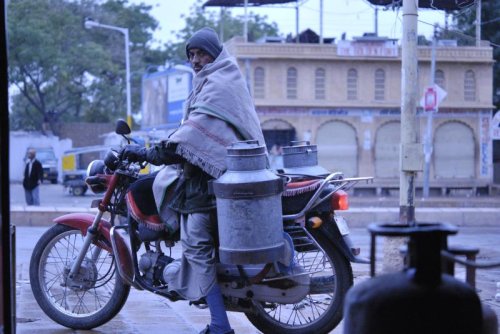New Zealand Herald | 5 February 2010
India free trade deal could mean big things for NZ agriculture

The possibility of a Free Trade agreement with India would have wide-ranging benefits for the New Zealand agricultural industry, and give Kiwi exports a helping hand in one of the world’s biggest markets, industry leaders say.
Trade Minister Tim Groser and Indian Commerce Minister Sri Anand Sharma announced the start of negotiations towards a Free Trade agreement at a WTO summit of trade ministers in Davos, Switzerland, this week.
"A free trade agreement with India offers great promise for New Zealand businesses," Groser said. "India is already one of our fastest growing markets, with New Zealand exports having tripled over the last decade."
He said New Zealand’s exports to India were worth NZ$630 million in 2009, and the FTA had the potential to increase exports in some sectors by as much as 300 per cent.
At the moment, India’s economy is highly protected. According to the Ministry of Foreign Affairs and Trade, tariffs placed on New Zealand dairy and meat exports to India range from 20 to 60 per cent.
Keeping in line with WTO agreements, India has the ability to charge tariffs as high as 100 per cent on baby formula and 150 per cent on frozen sheep meat.
Meat and Wool New Zealand chairman Mike Petersen said the possibility of an FTA with India had "massive potential" for the agriculture industry.
"You’re talking about a market of a billion people that we largely don’t export anything to now," he said.
While there were cultural issues around the export of beef, Petersen said there were big opportunities in India for New Zealand lamb and mutton.
"Almost nil" New Zealand meat products were being exported to India, he said, because of the country’s highly protected market, as well as technical trade barriers.
It was also difficult and expensive to comply with Indian sanitary standards for food imports.
Petersen said the proposed FTA had the potential to resolve these issues.
"What we’ve always found is that once you get a Free Trade Agreement up and running it increases trade between the countries dramatically - just the mindset changes," he said.
Petersen said large amounts of wool were used in India for carpets and other traditional products, and an FTA had the potential to help New Zealand’s "sick" wool industry.
Fonterra’s trade strategy manager, James McVitty, said India was not a major market for New Zealand dairy products at the moment, as the country produces more dairy products than any other nation on earth.
According to Statistics New Zealand, Kiwi dairy exports to India were worth just over NZ$68 million last year.
"Indians love dairy products, and they produce a lot of it themselves," said McVitty. "However, we are seeing a strong growth in demand and India has significant potential as a market in the longer term."
He said the FTA would allow India to "strategically partner" with New Zealand in dairy.
Federated Farmers economics and commerce spokesperson Philip York agreed that an FTA with India would provide big boost for New Zealand agricultural products, but warned that India’s agricultural industry was highly protected and meat and dairy products could be left out of the agreement.
"In the end [an FTA] would be great but you would need to get agriculture involved in it," he said.
Groser said the chances of agricultural products being included in the proposed FTA were positive.
"There is a large degree of complementarity between the two economies in relation to the range of agricultural products which each of us produce and in some areas where we produce the same products, our seasons are different, so New Zealand products would not necessarily be competing directly with locally produced goods," he said.
Groser said New Zealand’s expertise in the agri-tech sector could be could be employed to improve India’s production and expertise in the storage and distribution of food products, an area where there currently is a high level of loss in India.
"Potential for increased trade exists not only in relation to the export of goods, but also in relation to the export of services where we have also seen strong growth in recent years, especially in relation to tourism and education," he said.